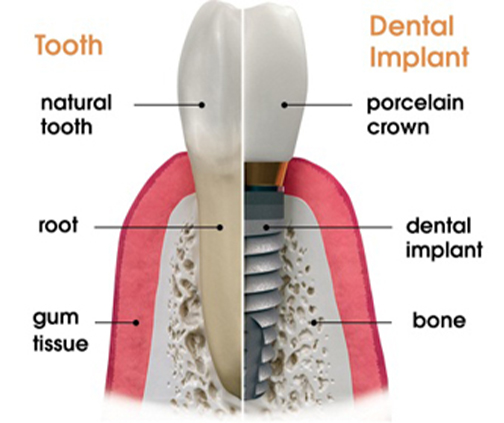Dental implants are the number one solution for the replacement of missing or failing teeth. They can completely restore appearance, function, and ultimately, self-confidence. Varghese has been placing Dental Implants for over 10 years and will answer all your queries during the assessment appointment.
A dental implant is an artificial tooth root made out of titanium. Titanium is a noble metal that is highly compatible with living tissue. This means that, even though it’s a foreign body that’s been introduced into the jaw, the body accepts the implant and encloses it with bone, creating a fixed and stable support for single crowns, bridges or dentures.







